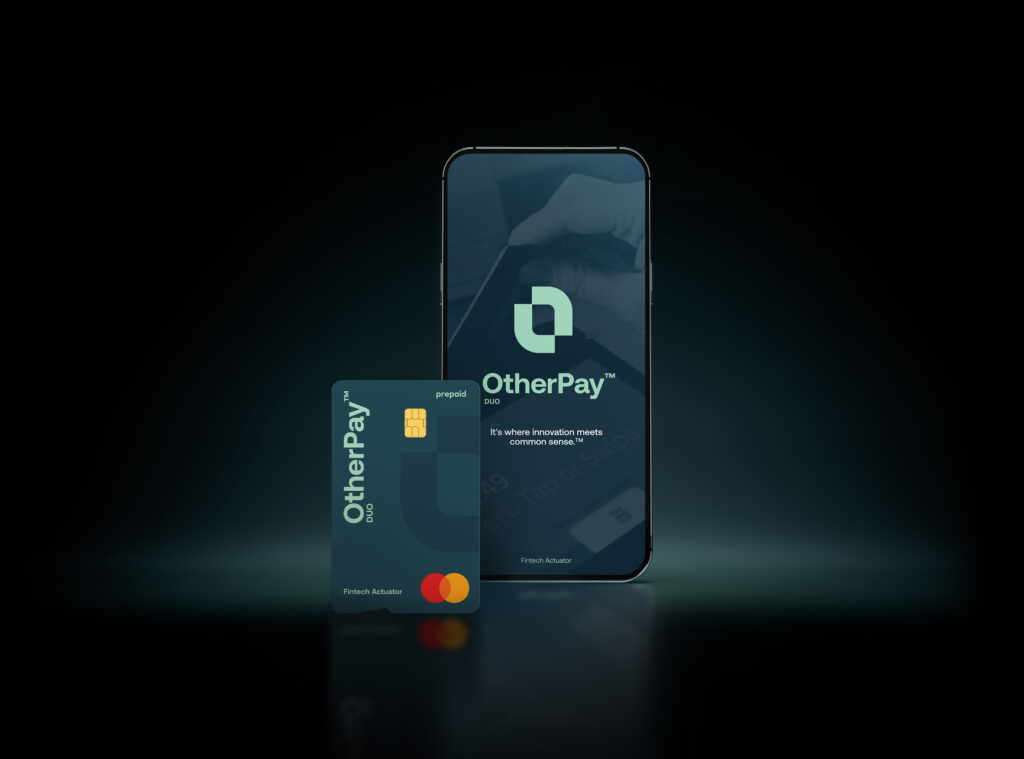Speed, reliability and innovation are non-negotiables in today’s digital payments environment. Yet for many banks, fintechs, and processors, outdated testing methods are creating a hidden bottleneck – slowing down deployments, increasing operational risk, and making it harder to keep up with regulatory changes.

Manual testing can’t keep pace
Legacy approaches to testing such as manual scripts, single-transaction test tools, and fragmented QA environments, weren’t built for the complexity of today’s payment ecosystems. Whether you’re launching a new card program, integrating with a new scheme, or updating your core systems, relying on limited testing can introduce risk at the worst possible time – just before go-live.
Ask yourself:
- Can your team run thousands of test transactions in minutes?
- Do you have visibility across all payment rails?
- Are you confident your systems will perform under real-world stress?
If the answer is “not really,” it’s time to consider a smarter approach.
What modern payment testing looks like
Modern payment testing solutions, like PaySim, take a simulation-first approach. That means you can emulate real payment traffic, test full transaction flows, and run thousands of automated scenarios, all before you ever go live.
A good testing platform should:
- Simulate multiple schemes (e.g. Mastercard, Visa, domestic networks)
- Support full lifecycle testing – from authorisation to settlement
- Integrate with your DevOps or CI/CD pipeline
- Reduce your reliance on expensive, time-boxed certification tools
Why Now Matters
As payment regulations evolve and consumer expectations rise, QA teams are under pressure to deliver faster – with fewer resources. Investing in robust simulation early in your development process isn’t just about testing. It’s about protecting your brand, reducing time to market, and building better products.
Ready to modernise your payments testing?
If you’re rethinking your testing strategy or simply wondering if there’s a better way – now’s the time to explore simulation-based testing.
At Change Financial, we’ve helped banks, processors, and fintechs streamline their testing and launch new products with confidence using PaySim – our scalable, real-time payment simulation platform.
Curious to learn more?
Contact the PaySim team today to find out more or to request a demo.
PaySim is Change Financial’s powerful payment testing and simulation software, designed to help banks, fintechs and financial institutions streamline and future proof their payment environments. With PaySim, organisations can confidently test end-to-end payment scenarios at scale, ensuring systems function correctly, remain compliant, and respond effectively to real world conditions.

Below we explore why PaySim is an essential tool for optimising your payments testing strategy.
Automation at Scale
Automation is transforming every part of the payments landscape, and testing is no exception. Traditional manual testing approaches can’t keep pace with the demands of agile delivery, frequent system updates, and complex integrations.
PaySim enables automated simulation of thousands of transactions simultaneously, far beyond what compliance-only tools offer, which typically test one transaction at a time. This allows teams to simulate a wide range of payment scenarios, from routine transactions to edge cases and failure conditions, all in a matter of minutes.
By integrating PaySim into your DevOps or QA workflows, you can:
- Run more tests, more frequently, with fewer resources
- Identify and fix issues earlier in the development lifecycle
- Accelerate deployment timelines with greater confidence
Clear Return on Investment (ROI)
Manual testing is time-intensive, error-prone, and expensive, especially for organisations with complex payment infrastructures. With PaySim, you eliminate repetitive manual test cases and reduce the need for large QA teams to run tests manually.
The platform delivers long-term ROI by:
- Supporting continuous testing, not just point-in-time compliance
- Reducing operational costs tied to regression testing and certification
- Enabling faster deployments and shorter release cycles
PaySim becomes a foundational part of your payment architecture, helping reduce overhead while improving product quality and reliability.
Regulatory Compliance
Regulatory and scheme mandates are constantly evolving. Staying compliant requires rigorous, up-to-date testing across all systems and flows.
PaySim helps organisations:
- Validate conformance with PCI-DSS, scheme mandates, and local requirements
- Proactively adapt to rule changes without last-minute disruptions
- Avoid transaction failures, regulatory penalties, and reputational risk
With automated testing for compliance built into your everyday workflows, your teams can focus on innovation, not chasing mandates.
Whether you’re launching a new payments product, upgrading your infrastructure, or preparing for certification, PaySim gives you the tools to test with confidence. By automating complex scenarios, reducing manual overhead, and ensuring regulatory alignment, PaySim helps banks and fintechs improve reliability, accelerate time-to-market, and reduce operational risk.
Ready to optimise your payments testing strategy?
Contact our team to learn more or book a demo today.
In today’s fast-paced, digital-first world, businesses are increasingly reliant on payment platforms to manage transactions, improve cash flow, and deliver seamless customer experiences. Whether you’re a start-up or an established business, selecting the right payment platform can significantly impact your growth. But with so many options available, how do you choose the right one?

At Change Financial, we understand the challenges businesses face in making this decision. Here’s a guide to help you navigate the process of choosing the best payment platform for your business.
1. Understand your business needs
Start by assessing your current and future payment requirements. Are you primarily accepting online payments, or do you need an omnichannel solution? Do you cater to a global customer base that requires multi-currency support, or is your audience local? Understanding your customer base, transaction volumes, and business goals will help narrow down the options.
Key Considerations:
- Payment methods (credit cards, prepaid cards, digital wallets, etc.)
- Frequency and volume of transactions
- Cross-border payments and currency conversions
- Recurring billing or one-time payments
2. Security and compliance
Security is paramount in today’s digital payments landscape. Your payment platform must adhere to the highest standards of security to protect your customers’ sensitive data. Look for platforms that are PCI-DSS compliant, offer encryption, tokenisation, and fraud prevention tools.
Additionally, if you operate in industries with strict compliance regulations, ensure the platform supports these requirements, such as GDPR for EU-based businesses.
Key Considerations:
- PCI-DSS compliance
- Encryption and tokenisation
- Fraud detection and prevention features
- Industry-specific compliance (e.g., PSD2, GDPR)
3. Costs and fees
While price should not be the only deciding factor, it’s important to understand the cost structure of the payment platform. Different platforms have various fee models, including per-transaction fees, monthly fees, setup fees, or additional costs for premium features. Choose a payment platform that offers competitive pricing without sacrificing essential features.
Key Considerations:
- Transaction fees (fixed or percentage-based)
- Monthly subscription costs
- Additional fees for features like chargeback management or currency conversion
- Scalability of pricing as your business grows
4. User experience and ease of integration
A payment platform should provide a smooth and frictionless experience for both you and your customers. Look for platforms that offer intuitive interfaces and simple integration processes. Most platforms provide plugins for major e-commerce platforms, but it’s worth ensuring that the platform integrates well with your existing technology stack, such as accounting software or customer relationship management (CRM) tools.
Key Considerations:
- Ease of integration with existing software
- Availability of developer tools and APIs
- Quality of customer support and documentation
- User-friendly interface for end customers
5. Scalability and flexibility
Your business is likely to grow, and your payment platform needs to scale with it. Look for a solution that can handle increasing transaction volumes and support additional features as your business evolves. Additionally, flexible platforms that allow you to customise payment flows, add new payment methods, or enter new markets will provide you with a competitive edge.
Key Considerations:
- Ability to handle higher transaction volumes
- Support for new payment methods or currencies
- Customisation options for payment flows
- Expansion capabilities for international markets
6. Customer support and reliability
Reliable customer support can be a lifeline in case of payment issues or technical glitches. Ensure the payment platform offers robust, round-the-clock support and has a strong reputation for uptime and reliability. A platform with frequent outages or slow processing can damage your customer experience and affect your bottom line.
Key Considerations:
- Availability of 24/7 customer support
- Channels for support (phone, chat, email)
- Platform uptime and reliability record
- Access to troubleshooting and knowledge base
Making the right choice
Selecting the right payment platform is a critical decision for your business. By focusing on your unique needs, security and compliance requirements, cost considerations, user experience, scalability, and customer support, you can find the best solution that not only meets today’s demands but also grows with your business.
At Change Financial, we’re committed to providing secure, scalable, and flexible payment solutions that empower businesses to succeed in the digital economy.
Get in touch with us to learn more about how we can help you streamline your payment processes and unlock new opportunities for growth.
In the fast moving world of payments, speed to market can be the difference between first-mover advantage and missed opportunity. Whether you’re a fintech start-up, digital bank, or an established financial institution modernising your offerings, launching a card program in 90 days is not only possible – it’s essential.

At Change Financial, we specialise in helping businesses go live faster with flexible, secure and scalable card issuing solutions, with an experienced team alongside you every step of the way. Here’s a step-by-step guide to help you move from idea to launch in just three months.
Phase 1: Planning & Partner Selection (Days 1–15)
Key Objectives:
- Define your goals, target market, and product scope
- Choose the right technology and issuing partners
- Begin compliance planning
Checklist:
- Determine card type (prepaid, debit, credit)
- Decide on digital, virtual, or physical card delivery
- Select a Payments-as-a-Service (PaaS) provider like Vertexon
- Confirm BIN sponsorship and network (e.g. Mastercard)
- Map out key compliance obligations (e.g. KYC, AML, PCI DSS)
Tip:
Choose partners that provide pre-certified, ready-to-launch solutions. This eliminates delays caused by technical or regulatory uncertainty.
Phase 2: Card Program Design & Integration (Days 16–45)
Key Objectives:
- Design your card product and user experience
- Configure your tech stack and start integration
- Begin regulatory documentation and onboarding
Checklist:
- Finalise card design (branding, embossing, packaging if physical)
- Integrate APIs into your core platform (e.g. via Vertexon sandbox)
- Configure account, card and transaction rules
- Start onboarding process with issuing bank and card network
- Begin marketing and go-to-market (GTM) planning
Tip:
Use sandbox environments to speed up integration and test your product in real-time before live certification.
Phase 3: Testing, Certification & Pre-Launch (Days 46–75)
Key Objectives:
- Complete testing and ensure platform readiness
- Finalise program documentation and approvals
- Prepare for launch
Checklist:
- Simulate card and transaction flows with tools like PaySim
- Pass network and compliance certification (PCI, EFTPOS if applicable)
- Load initial test cards and run user testing (UAT)
- Train internal support teams
- Finalise marketing materials, FAQs, and customer onboarding flows
Tip:
Work with partners that offer built-in testing and certification to streamline this phase.
Phase 4: Go Live & Optimise (Days 76–90)
Key Objectives:
- Launch your card program to the public
- Monitor performance and feedback
- Optimise early-stage experience
Checklist:
- Launch digital wallet provisioning (Apple Pay / Google Pay)
- Activate live card issuing and load funds
- Monitor key KPIs (transactions, activations, declines)
- Capture early user feedback
- Begin scaling outreach and acquisition efforts
Tip:
Start small with a controlled launch, then scale based on feedback and data insights.
Launching a card program in 90 days requires the right technology, regulatory foresight, and experienced partners. With Vertexon and PaySim, Change Financial provides a complete solution for banks and fintechs looking to launch fast – without sacrificing security, flexibility or scale.
Want to accelerate your card launch?
Contact us to learn how Change can help you go from idea to issue – in under 90 days.
In today’s competitive payments landscape, your card issuing platform shouldn’t just support your business, it should help drive it forward. Yet many financial institutions and fintechs find themselves constrained by expensive legacy platforms that limit their ability to innovate, scale, or deliver a great customer experience.

If you’ve ever asked yourself whether your current card platform is still the right fit, here are five signs it might be time to consider a change.
1. Long Time-to-Market for New Products
If it takes months to launch a new card product or update an existing one, you’re already behind. Legacy systems often lack the flexibility, platform support or developer tools needed to move quickly, making it harder to respond to market trends or customer demands.
What to look for instead:
Platforms with modular architecture, modern APIs, and low-code integration options can dramatically reduce time-to-market, all supported by a local experienced team.
2. Limited Control Over Card Features
Can you easily configure card controls, set spend limits, or adjust merchant restrictions? Or do you have to rely on a third party every time? If you’re losing time (and money) waiting for simple changes, it’s a clear sign your platform is holding you back.
The modern alternative:
Next-gen platforms put control in your hands – no more waiting on vendors to make basic updates.
3. Poor Visibility and Reporting
In a data-driven world, delayed or incomplete transaction insights can leave you blind. If your current platform doesn’t offer real-time visibility, or if reporting is cumbersome and manual, you’re missing out on critical opportunities to improve performance and customer experience.
4. Inflexibility Across Programs or Regions
Are you juggling multiple systems to run card programs across different business lines or geographies? Outdated platforms often don’t scale well – resulting in fragmented operations and inconsistent user experiences.
A better way:
Modern issuing platforms offer unified control and global capabilities, so you can scale efficiently without compromising compliance or customer experience.
5. Your Customers Expect More
Your end users expect instant provisioning, seamless digital wallet integration, and intuitive self-service features. If your platform can’t deliver these experiences, they’ll find one that can.
What today’s users want:
Apple Pay and Google Pay integration, real-time notifications, and smart controls delivered through a card experience that feels effortless.
Future-Ready Card Issuing with Vertexon
If any of these signs sound familiar, it might be time to explore a better way forward. Vertexon by Change Financial is a modern, scalable card issuing and transaction processing platform that puts control back in your hands. From digital-first issuance to advanced spend controls and real-time program insights, Vertexon helps you launch, manage, and scale card programs, fast!
Ready to see what’s possible?
Learn more about Vertexon or get in touch with our team to explore how we can help you future-proof your card platform.
As the payments landscape continues to evolve rapidly, choosing the right payment platform is one of the most critical decisions a fintech, financial institution, or business looking to expand its product offering can make. Whether you’re launching a new card program or modernising legacy infrastructure, the platform you choose can make or break your ability to scale, comply, and compete.

Here are the key factors to consider when evaluating a payment platform:
1. Speed to Market
In an industry where first-mover advantage is everything, your platform should support rapid deployment. Look for solutions with modular architecture, low-code integration options, and ready-to-use APIs that help get your card products live in weeks, not months.
2. End-to-End Card Program Management
A truly effective platform should cover the full card lifecycle – from issuing and processing to authorisation and settlement. Managing multiple vendors for each function can lead to complexity, delays, and added cost. End-to-end platforms offer operational simplicity and better control.
3. Scalability and Flexibility
As your customer base grows, your platform should scale with you. Consider whether the platform supports multiple card types (credit, debit, prepaid), regional compliance needs, and customisable workflows that align with your growth roadmap.
4. Integration Capabilities
Your platform needs to work with your existing infrastructure. Look for developer-friendly APIs, real-time data access, and flexible sandbox environments that make integration faster and testing easier.
5. Compliance and Security
PCI DSS compliance, tokenisation, and fraud prevention features are non-negotiables in today’s environment. The right partner will proactively help you stay ahead of evolving regulations and security threats.
6. Digital Wallet Enablement
Instant provisioning to Apple Pay and Google Pay is now essential. Ensure the platform supports seamless digital wallet integration to meet modern customer expectations for convenience and security.
7. Local Support and Industry Expertise
Global capability is important but so is having local expertise. Whether you’re a fintech in Australia or a regional bank in Southeast Asia, having access to real, responsive support can make all the difference during implementation and scale.
Choosing a payment platform isn’t just about technology – it’s about finding the right partner to support your growth and innovation strategy.
If you’re looking to launch faster, reduce complexity, and future-proof your card program, now might be the time to explore how a modern Payments as a Service (PaaS) solution like Vertexon can help.
Want to learn more?
Contact Change today or download our guide on How to Launch a Card Program in 90 Days
- OtherPay is pioneering safer shopping and stronger authentication with unique payment card and mobile integrated solutions.
- Change Financial and Fintech Actuator partnered with Mastercard in August 2024 to launch an incubator program to support innovation – turning bold ideas into reality.

Brisbane-based fintech, Change Financial, has today announced OtherPay as the latest participant in its Prepaid Incubator program. OtherPay is a fast-growing fintech platform revolutionising electronic payments and consumer authentication.
Focused on ending purchase and identity fraud, OtherPay aims to bridge the gap between traditional banking and the evolving needs of modern consumers. By participating in the incubator, OtherPay will introduce prepaid card functionality into its platform, enhancing its offering with new tools and features for purchase and identity protection.
Simon Hewitt, Chief Executive & Innovations Officer at OtherPay said “We’re proud to be part of the program and to work alongside Change Financial and Fintech Actuator. This collaboration provides us with a valuable opportunity to accelerate the development and launch of our unique payment card features where we believe that innovation meets common sense and where both purchase and identity fraud can be prevented.”
Tim Boucaut, CEO, of Fintech Actuator commented: “OtherPay is building a solution with the potential to put an end to purchase and identity fraud. We’re excited to support their journey and bring their innovation to market through this program.”
In this alliance, Change Financial will issue Mastercard prepaid cards, with Fintech Actuator managing the program, aiding FinTechs with comprehensive guidance from onboarding to design and execution.
The incubator program, which launched last year, saw Change Financial and Mastercard create an environment that empowers emerging FinTechs to innovate by running small scale prepaid card solutions to test their products in market, without the cost and extensive processes involved in launching their own custom card programs.
Each program runs for a period of six to nine months, providing continuous support and guidance to the participating FinTechs.
“This innovative incubator program was crafted with a vision to accelerate the growth and innovation of Australian FinTechs, ensuring they have the necessary tools and support to navigate through the initial stages of development and market testing. This latest partnership with OtherPay is this vision in action,” said Tony Sheehan, Chief Executive Officer of Change Financial.
- Accountedfor.com.au delivers a complete business accountant service – in the palm of your hand.
- Change Financial and Fintech Actuator partnered with Mastercard in August 2024 to launch an incubator program to support innovation – turning bold ideas into reality.

Brisbane-based global fintech, Change Financial, has today announced the next participant in their Prepaid Incubator program – Accountedfor, a platform redefining how professional services firms engage with clients and deliver integrated financial solutions.
Accountedfor is a modern financial services platform that empowers accounting and advisory firms to deliver streamlined, real-time financial services to their clients. With an emphasis on automation, transparency, and user experience, Accountedfor is pioneering the next generation of account practice management – including integrated spend control via prepaid card solutions.
David Thornton, Co-Founder of Accountedfor said “We’re excited to be part of the Incubator program and work closely with Change Financial and Fintech Actuator. This partnership provides us with an opportunity to integrate prepaid card capabilities into our platform and deliver greater value and innovation to our clients.”
Tim Boucaut, CEO, Fintech Actuator commented: “Accountedfor brings a fresh perspective to the professional services space, and their vision aligns perfectly with our goal of supporting emerging FinTech’s. We’re thrilled to partner with them to help bring their solution to market.”
In this alliance, Change Financial will issue Mastercard prepaid cards, with Fintech Actuator managing the program, aiding FinTechs with comprehensive guidance from onboarding to design and execution.
The incubator program, which launched last year, saw Change Financial and Mastercard create an environment that empowers emerging FinTechs to innovate by running small scale prepaid card solutions to test their products in market, without the cost and extensive processes involved in launching their own custom card programs.
Each program runs for a period of six to nine months, providing continuous support and guidance to the participating FinTechs.
“This innovative incubator program was crafted with a vision to accelerate the growth and innovation of Australian FinTechs, ensuring they have the necessary tools and support to navigate through the initial stages of development and market testing. This latest partnership with Accountedfor is this vision in action” said Tony Sheehan, Chief Executive Officer of Change Financial.
- Change has signed a new flagship PaaS client in New Zealand – Unity Credit Union
- Over 20,000 Unity Credit Union debit cards will be issued on Change’s Vertexon Platform
- Change has now signed six New Zealand financial institutions, including the two largest credit unions in New Zealand, representing over 65,000 account holders

Change Financial Limited (Change), a leading ASX listed (CCA) Australian payments fintech, has signed a new Payments as a Service (PaaS) contract with Unity Credit Union (Unity), one of the largest credit unions in New Zealand, to provide direct issuing, processing and card management solutions via its Vertexon platform.
Change has commenced the onboarding process, with Unity expecting to have approximately 20,000 debit cards, in circulation by December.
Change Financial CEO, Tony Sheehan said, “It’s great to see a large and well-respected credit union like Unity choose Change Financial in New Zealand for fast, reliable, and seamless consumer card solutions. We have made significant investment in our platform and like our other financial institution clients in New Zealand, Unity is making the switch to Change to take advantage of advanced features and services that allow them to deliver superior payments experiences to their customers.
“We now have a significant presence in the New Zealand market with our platform servicing the two largest credit unions.”
“With our Vertexon platform fully operational, it is highly encouraging to secure another significant client as we build scale and momentum.” Mr Sheehan said.
Unity will use Change partner Finzsoft Solutions Limited (Finzsoft) as their core banking platform provider, so given these synergies the development work for the onboarding process has already substantially been completed, creating immediate efficiencies for all parties. The addition of another credit union to Change’s suite of customers throughout the New Zealand market is further recognition of the strong partnership and combined value offering of Change and Finzsoft.
Unity Credit Union CFO and acting CEO, Bruce Morrin said, “Change’s product and service offering will enable us to improve the payments experience for our customers. From being able to offer enhanced features such as Apple Pay and Google Pay, to having superior controls that reduce fraud and other operational costs, we can provide modern card features that rival the major banks, a significant and unique value proposition for non-bank financial institutions like us.”
Change has now secured the two largest credit unions in NZ as Vertexon PaaS clients in addition to several other NZ financial institutions and fintechs. Once the migration with Unity is complete, it will take the total number of account holders serviced via the Vertexon platform within New Zealand to over 65,000.
Mr Sheehan added, “Change Financial is continuing to expand its presence within the New Zealand market, which comes at a time when it is still quite difficult for smaller to medium sized New Zealand businesses to access consumer card programs, beyond those offered by major banks. By addressing this gap in the market, we will continue to build our presence whilst also improving the payments experience for consumers.”
When deciding on a new card payment platform, it’s crucial to consider the technical features that will ensure a seamless, convenient and secure experience. Here are five essential features to prioritise when evaluating card payment platforms.

Payment Platform Features
Integration with Digital Wallets:
As digital wallet platforms like Apple Pay, Google Pay, and Samsung Pay gain popularity, it’s important to choose a card payment platform that seamlessly integrates with these systems. This integration allows customers to make payments using their digital wallet, offering both convenience and enhanced security compared to traditional physical cards.
APIs for Mobile Development and Integration:
If you’re a developer or plan to incorporate the payment platform into your mobile or web-based application, look for a platform that provides robust APIs (Application Programming Interfaces). These APIs enable easy integration, allowing you to customise the payment experience and create a seamless connection within your app.
Cardholder Self-Service:
Empower cardholders with greater control and convenience by opting for a payment platform that offers self-service features:
- PIN Reset: Allow users to reset their PIN securely.
- Card Blocking: Enable cardholders to block a lost or stolen card immediately.
- Temporary Card Pausing: Let users lock their card temporarily—for those times when they need a break from card usage.
These features prove especially valuable during emergencies or when managing card security.
Security and Fraud Protection:
Prioritise a payment platform that goes the extra mile in safeguarding transactions. Key security measures include:
- 3D Secure (3DS): Implement this security protocol to protect online card transactions.
- Encrypted Data Transmission: Ensure that sensitive information remains confidential during communication.
- Secure Servers: Host transactions on secure servers to prevent unauthorised access.
- Regular Security Updates: Stay ahead of potential threats by keeping security protocols up to date.
Virtual Cards:
Another useful feature to consider is the ability to create virtual cards. Virtual cards are digital versions of physical cards that can be used for online transactions. Virtual cards have several advantages including:
- Organised Finances: Create separate virtual cards for different purposes (e.g., online shopping, family expenses).
- Loss and Theft Prevention: Virtual cards cannot be physically lost or stolen.
Discover Vertexon: Delivering Modern Card Payment Solutions
Vertexon, a Payment as a Service (PaaS) platform developed by Change Financial, stands out in delivering modern and digital payment experiences for both businesses and consumers.
Vertexon excels in its integration with digital wallets, supporting popular options like Apple Pay, Google Pay, and Samsung Pay, allowing end users to make payments online or in-store using their mobile device.
The platform also offers APIs for businesses to seamlessly integrate Vertexon into their systems, fostering customised payment experiences for their customers.
Cardholder self-service is a notable feature of Vertexon, empowering users to manage their cards and PINs while accessing their transaction history.
Security is a top priority, with Vertexon implementing multiple layers of protection, including encryption, secure authentication, and real-time monitoring to combat fraud and unauthorised transactions.
Adding to its versatility, Vertexon supports the use of virtual cards, catering to businesses with frequent online payment needs. These cards can be easily generated and managed through the Vertexon platform.
For businesses seeking to modernise their card platform with these essential features, our sales team is ready to assist.
Explore all the features of Vertexon by checking out our comprehensive roadmap and elevate your payment experience with Vertexon today!

